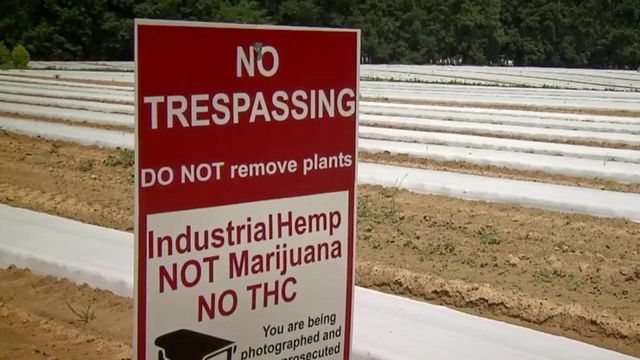Person County farmers testing hemp as NC's next cash crop
Jay Foushee believes he has planted the state's first commercial, industrial hemp.
Posted — UpdatedJay Foushee believes he has planted the state's first commercial, industrial hemp.
"We call it Carolina Gold," he said.
Foushee, a fourth-generation farmer, put in 6,000 more hemp plants on Monday.
He grew up with tobacco, but with acceptance of smoking changing, he's had to change, too. He grew grain for a few years before considering hemp.
"It has been a huge, huge, learning curve," he said.
"The potential income we can make on this crop is more than we can make on grain right now."
Industrial hemp plants contain almost no THC, the compound that makes marijuana so potent. The flowers of Foushee's plants will be used in the medical field, and the stems will be used for their fiber content, easing the demand on timber.
A change in the law in 2014 made agricultural production of industrial hemp possible. It's taken until this year for the rules and regulations to be in place.
Calvin Whitfield and his brother are leading the hemp farming effort in Person County.
"Hopefully, we will take our model here, and we will grow it through our community to help other farmers," he said. "This is an economically rewarding crop in the end, much more so than tobacco is. That's our whole goal, to increase profitability on the local farm."
Whitfield foresees riches spread to the rest of the community through jobs processing the crop. "Hopefully we can provide some jobs, use some old tobacco facilities in the county that can renovated," Foushee said.
The plants will be harvested in September. They are planting a half-dozen varieties experimenting to see what grows best in North Carolina.
"As long as we can make it grow and and make it a viable commodity for the farmers of North Carolina, I think we'll be OK," Foushee said.
• Credits
Copyright 2024 by Capitol Broadcasting Company. All rights reserved. This material may not be published, broadcast, rewritten or redistributed.





